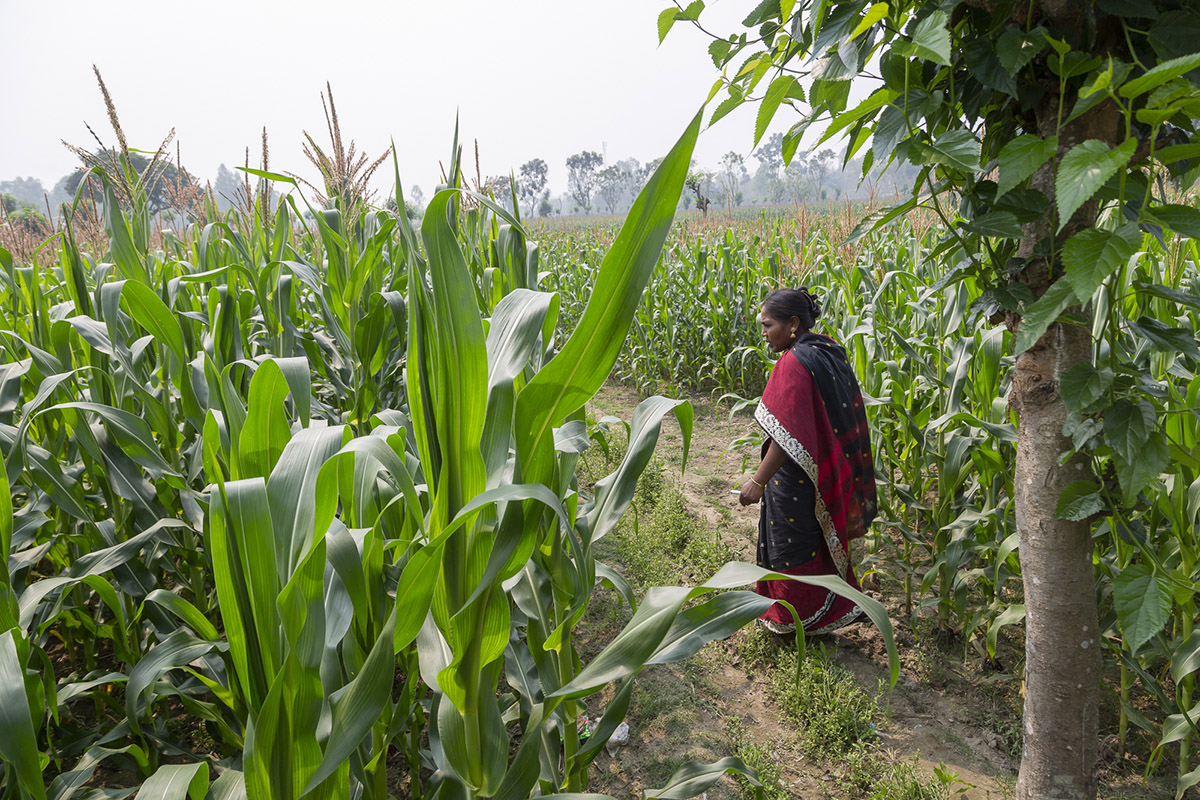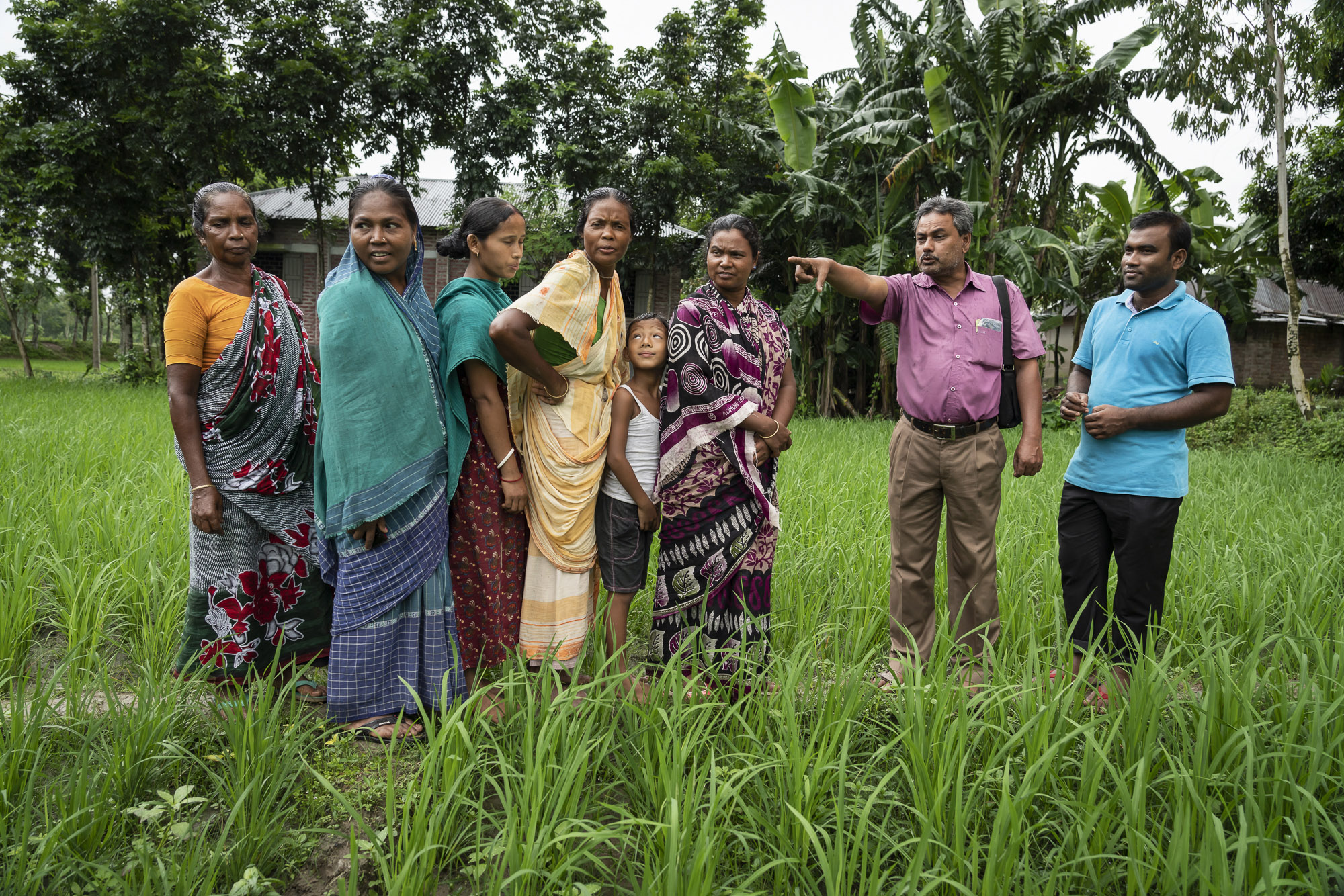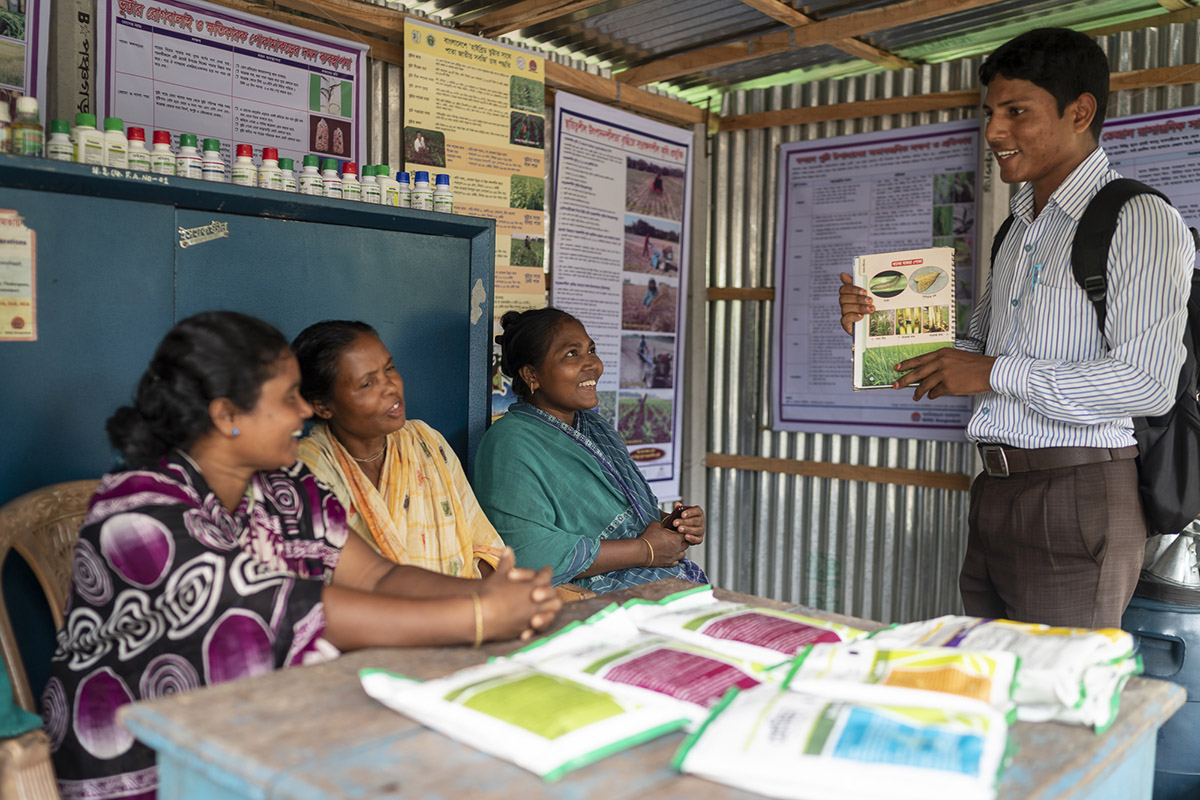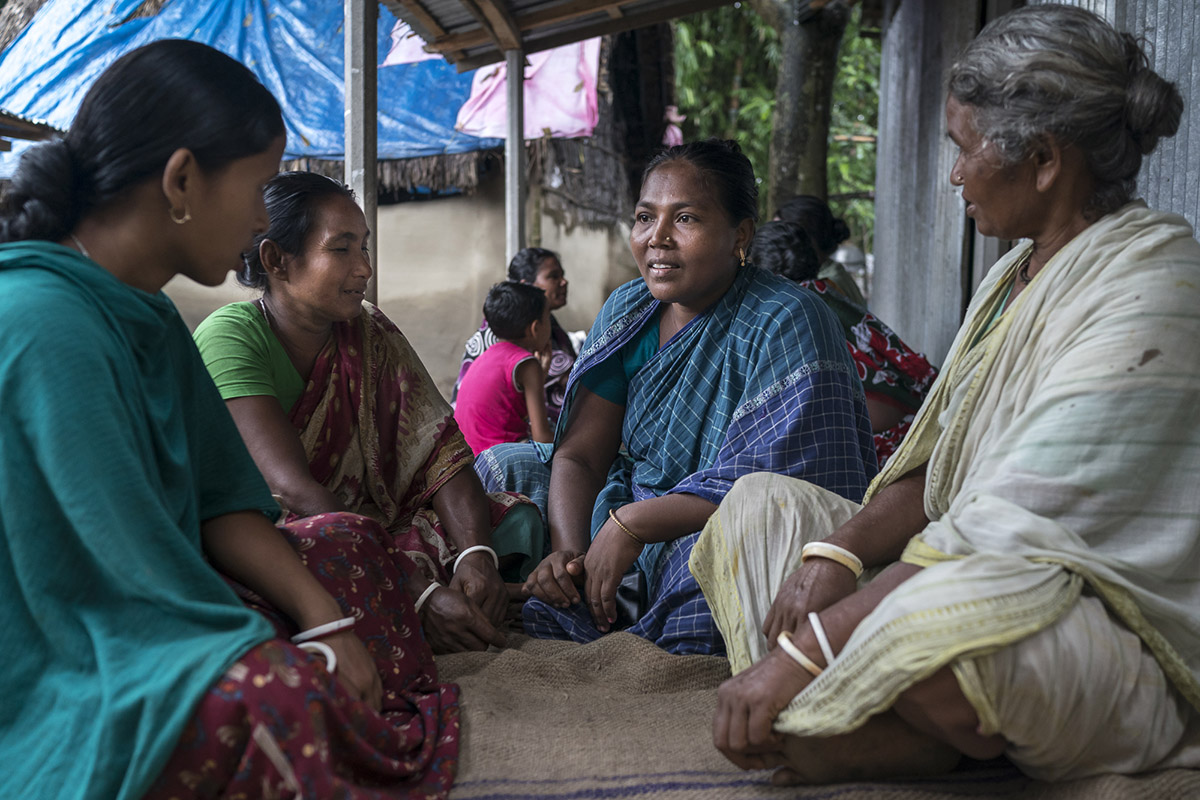Kalpana’s Story
A remarkable personal journey from farm labourer to technology promoter
Kalpana and her three children live in Mohonpur Village, Rangpur District, Bangladesh. The family are minority Indigenous Christians and also landless.
In Bangladesh, according to the FAO, 29 million households – about 88% of all households in the country – live in rural areas with roughly 80% of farm households classified as small (an average farm size of 0.35 hectares) and 29% of rural households who own no cultivatable land.

Kalpana is one of the many millions of farmers in Bangladesh who have no option each year but to lease farmland to grow her rice and wheat crops that are the primary source of food for her family, with excess yields being sold for additional income. There is great risk involved with leasing land, and farmers often take loans with high interest that can be difficult to repay if yields are low. Farmers are experiencing the impact of climate change: erratic monsoon rains, floods, and untimely storms that have affected agricultural production in the past decade.
In 2015, the Sustainable and Resilient Farming Systems Intensification (SRFSI) project began working in the Eastern Gangetic Plains of Bangladesh, India and Nepal with the aim of reducing poverty by making smallholder agriculture more productive, profitable and sustainable while safeguarding the environment and involving women. SRFSI is led by International Centre for Maize and Wheat Improvement (CIMMYT) in collaboration with a number of local partners including RDRS Bangladesh.

The SRFSI team began working with local farmers in Kalpana’s village, introducing them to Conservation Agriculture-based Sustainable Intensification (CASI) practices and technologies.
After seeing the farmer meetings and practical demonstrations taking place, Kalpana decided to join the project and offer up her own leased land to trial the zero till maize.

“This year I sowed maize with the (zero till) machine , this is the first time I used it. The difference is that before I used to do it with labourers I had to pay for, or then if I labored on it myself it’d take the entire day. But now 3-4 hours and the sowing is done, so the time required is less, I have to put in less labour, I spend less money, these are the differences I have observed. There will also be a slightly higher profit with this (farming practice).”
Since adopting the CASI practices Kalpana has been able to see the obvious benefits on her own land and as a result has become a passionate ambassador for the project. Kalpana is actively involved in her community and other neighbouring villages assisting to run workshops that enable new smallholders to be exposed to CASI practices in Rangpur District of Bangladesh.
So far the SRFSI project has reached more than 200,000 farmers across Bangladesh, Nepal, and in the Indian states of West Bengal and Bihar.

Kalpana sits and talks with a group of fellow female farmers from her village in Bangladesh. As part of SRFSI, women have been actively engaged in learning about and also adopting new CASI farming practices.